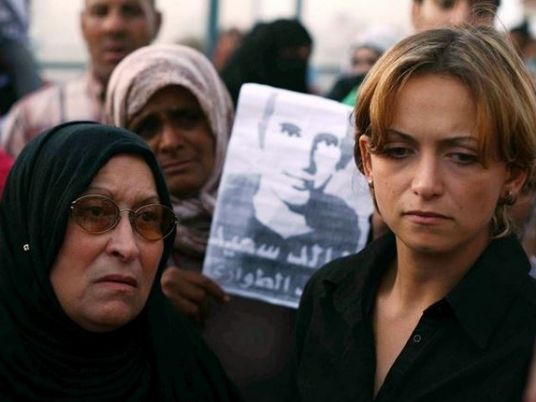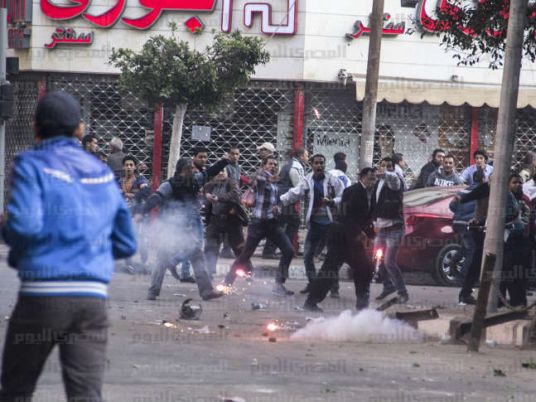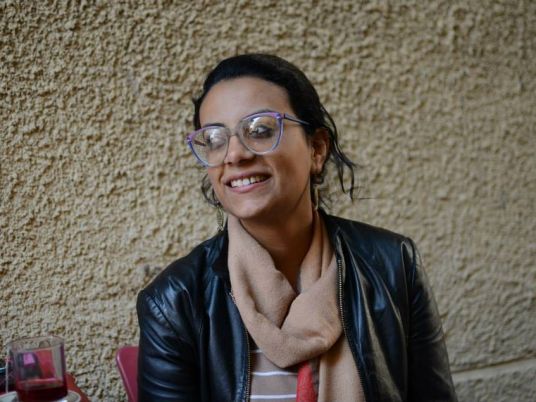“Khaled Saeed” is the username of the email address he uses to connect with his angry followers. He won’t be pushed to reveal his name or even minor details about his identity. He can only be heard through G-talk, as he believes his IP address, and potentially his location, can be traced using Skype. The death threats he says he receives make him nervous about any carelessness that could expose his identity.
When asked to identify himself, he simply says: “I am a young Egyptian man who is not satisfied with the conditions of our country.”
With a high level of invisibility, this young man has succeeded in creating and maintaining “We are all Khaled Saeed,” a Facebook page which serves as a platform for his peers to express their outrage over the death of Khaled Saeed, to organize, and to share ideas about the most unconventional tactics of political resistance.
“It was a very spontaneous decision,” says an anonymous voice via G-talk. “I wanted to tell people that the same could happen to me, or to anyone else.”
As soon as the photos of Khaled Saeed’s deformed face and bashed head were circulated on the internet in early June, this young man, who had never before engaged in any political activity, launched his Facebook page. Within a few weeks, the page attracted nearly 222,000 members.
“People were horrified by Saeed’s picture. They used to log in to the page and swear at the perpetrators,” he says.
Earlier this summer, the death of the 28-year-old Alexandrian made headlines and provoked several protests that called for his killers to be prosecuted and Egypt’s state of emergency to be lifted.
The case also stirred international criticism, which eventually forced the regime to refer for trial the two policemen who eyewitnesses allege beat Saeed to death. Hearings started last week and are scheduled to resume on 25 September.
In Facebook jargon, the anonymous cyber activist is recognized as the page’s “admin,“ or administrator. By virtue of this title, he is taken up with managing the page’s content, initiating debates, posting news updates, and conducting polls over the most effective tactics to highlight Saeed’s case. Between these tasks and his real-life job, which he refuses to reveal, the admin says he only has three hours of sleep.
Top of the tactics promoted by the page is silent protest, whereby Saeed’s sympathizers dress in black and take to the streets, not uttering a word to each other or even holding hands. They are expected to stand silent while reading from the Bible or the Quran.
“The message of silent protests is much stronger than thousands of demonstrations where people normally shout and cameras shoot, as if it were a football game,” he says. Plus, it is a way to circumvent the country’s 29-year-old emergency law, which bans demonstrations and the chanting of slogans, he adds.
The idea has already appealed to hundreds of Alexandrians who have taken to the streets in silence four times since Khaled Saeed’s case became public.
“We want to do something new,” says Sara Omar, a 23-year-old Alexandrian who has been involved in protests for the last five years. “They [the police] claim that shouting slogans annoys them. Okay, our protests are now silent.”
This innovative tactic has been more effective in attracting larger numbers of demonstrators, she says, because there are many people who are afraid to demonstrate by shouting slogans.
“A silent protest usually has a higher number of participants than a regular one because anyone could join in just by standing next to us,” says Omar.
Like many pro-Saeed activists, Omar does not know the identity of the person she is following. Yet his obscurity does not bother her. “We do not care who the administrator is,” says Omar. “We are not driven by this person; we are driven by the issue.”
“No one knows who I am,” says the Facebook page admin, “except a very small number of people who live abroad. I gave them the password to the page so they can maintain it in case anything happens to me.”
Besides silent protests, the “We are all Khaled Saeed” page has been encouraging its members to mark currency notes with the slogan “No to Torture, No to the Emergency Law,” hoping to reach millions of Egyptians.
“If I lived in a country that respected me, I would not resort to this, because the currency note is not mine and it belongs to everyone,” says the mysterious admin. “But this country does not respect your human rights and this is why you have to come up with extraordinary tactics.”
In recent years, the social networking site Facebook has been a significant platform for social and political mobilization in Egypt. The call for a national strike to protest inflation and political stagnation in April 2008 marked the inception of Facebook activism. The message coincided with a labor strike that turned into a riot in the Delta province of Mahallah.
As a primary reaction, the regime arrested a dozen Facebook activists and accused them of instigating civil disobedience. Since that time, until Saeed’s case, Facebook activists fell short of mobilizing remarkably large demonstrations.
“What is peculiar about these new forms of silent resistance is that they introduce an additional layer of political activism in Egypt,” says Amr Hamzawy, an expert with the Carnegie Endowment for International Peace.
“This layer is informal. It's not being influenced greatly by opposition groups, nor by ideologies. It's therefore dynamic, and issue-based.”
The “We are all Khaled Saeed” page’s administrator is fully aware of the advantages of being informal and is determined not to turn his group into a formal political movement or party.
“In order to succeed, we should stay away from becoming an organization, because the government knows how to destroy any organization,” he says. “The whole thing is spontaneous and to participate, you simply need to hit the ‘like’ button on Facebook.”
However, these resistance strategies are far from posing a real threat to the ruling regime, according to Hamzawy.
“They are by definition not sustained forms of opposition activism,” he sats. “However, they demonstrate how deep and wide ranging popular frustration is.”
President Hosni Mubarak’s regime is passing through a critical juncture as social and political discontent has reached unprecedented levels.
In the last four years, his regime has been rocked by thousands of labor protests over rising inflation and deteriorating economic conditions. In the meantime, opposition groups have been pressuring Mubarak to lift the 29-year-old state of emergency and introduce political reforms that would allow independent candidates to run in the presidential election, slated for fall 2011.
“As long as the government does not fix its errors, we will keep coming up with new ideas to express our outrage,” says the anonymous architect of “We are all Khaled Saeed.”




